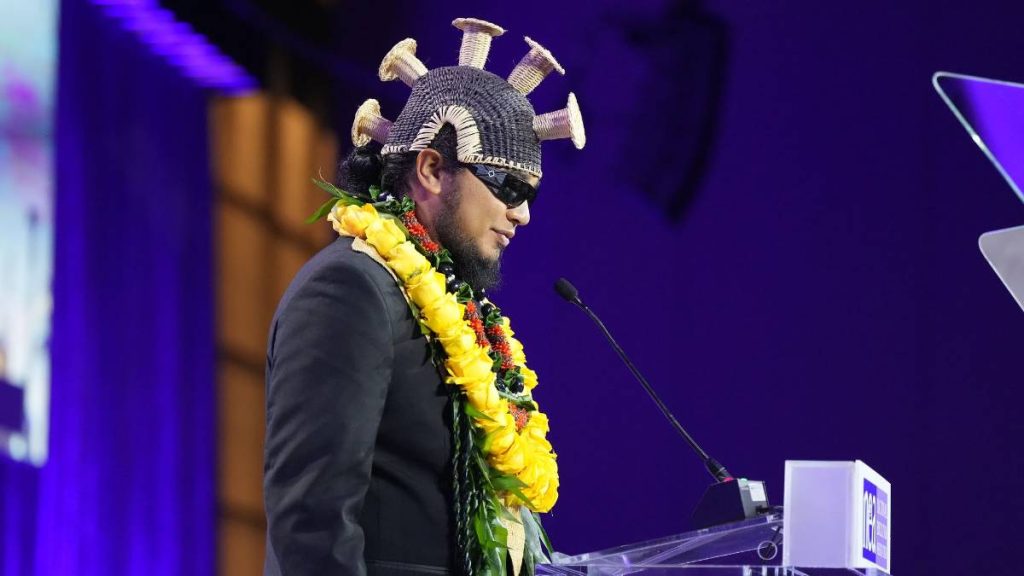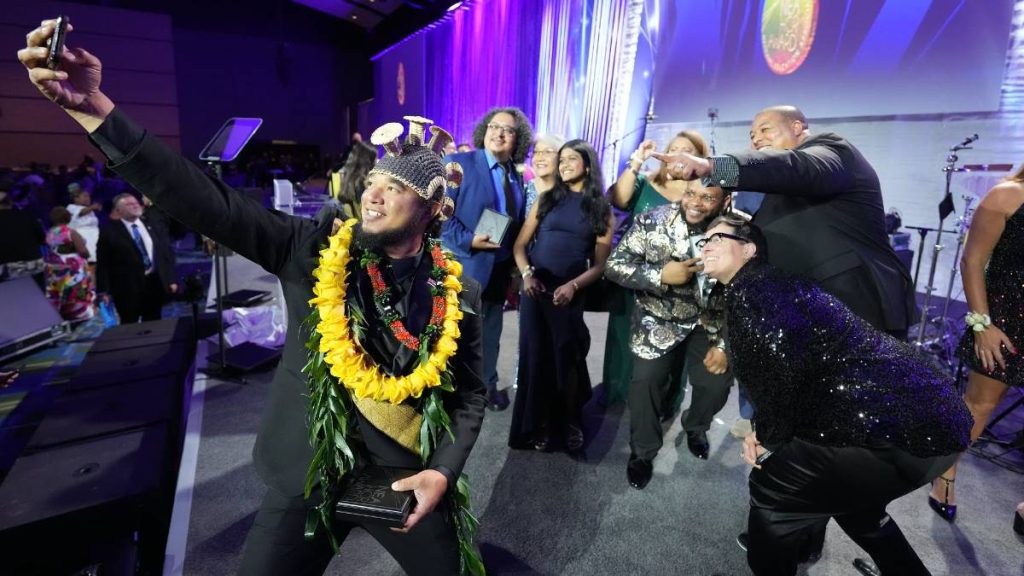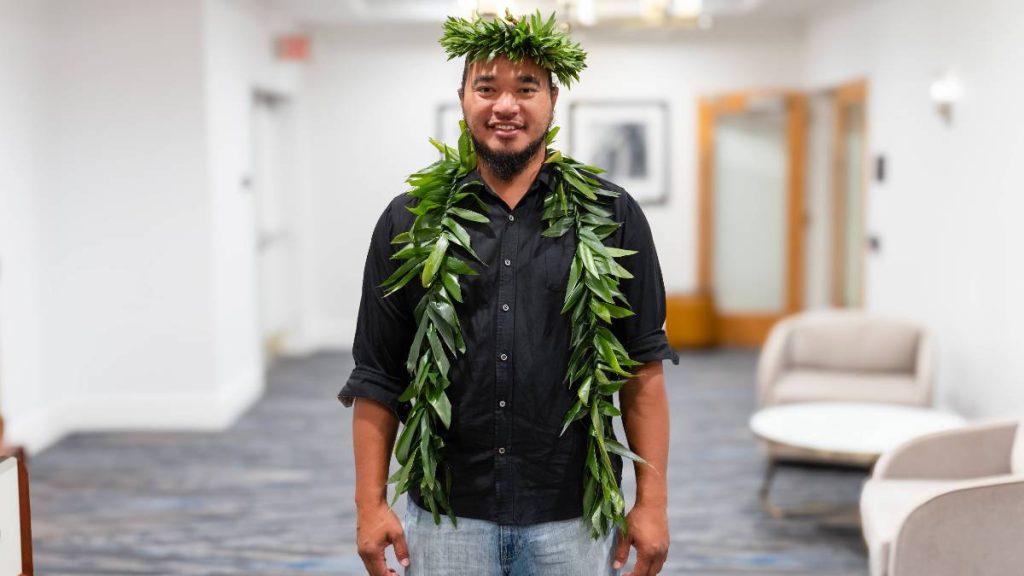National Education Association honors Kauaʻi community leader
A Kaua’i community organizer was honored at the national level for his work in preserving Hawaiian lands and culture, including the restoration of an ancient fishpond near Līhuʻe, at the National Education Association’s annual Human and Civil Rights Awards in Philadelphia last Wednesday, July 3, 2024.
Fred “Peleke” Flores received the Ellison S. Onizuka Memorial Award, named after the late astronaut and engineer from Hawaiʻi, at the Pennsylvania Convention Center on Wednesday evening. The award honors individuals who significantly impact education, achievement and the equal opportunity of Asians and Pacific Islanders.
“I didn’t realize how big it was until a few days before,” he said in an interview after returning to Kauaʻi. “To be there and then seeing the other awards being awarded … To be honored within that realm in those categories is definitely humbling.”
Flores works as the director of ʻāina and community engagement of Mālama Hulē‘ia, a nonprofit organization working to restore native wetland ecosystems and create an environmental stewardship program honoring Hawaiian values.
His work includes educating the community about traditional Hawaiian food systems including taro patches and fish ponds, doing restoration work, and increasing engagement in the community.
For the past five years, Flores and Mālama Hulē‘ia have been working to revitalize the ʻAlakoko Fishpond, clearing it of invasive species to allow endangered, indigenous species to repopulate.
In October 2023, Flores successfully gathered just under 2,000 volunteers to help set a foundation for the 2,700-foot wall of the ʻAlakoko Fishpond, Kauai’s largest remaining Hawaiian fishpond.
Flores was nominated for the award by the Hawaiʻi State Teachers Association Kauaʻi Chapter, including its president Sarah Tochiki, who is also the band director at Chiefess Kamakahelei Middle School.
“They have a goal to essentially make the fishpond something to feed the island for generations,” said Tochiki in a statement. “But the fishpond is not only a place to preserve history. It is a historical place where the past connects to the future by working in the present with the keiki and families of Kaua‘i.”
Flores said he initially hesitated when Tochiki asked him months ago about becoming a nominee for the award.
“In the beginning, I was like, oh no need. Thank you for thinking of me,” he said with a laugh, adding he didn’t have time for all the paperwork.
However, Tochiki persisted, saying the organization would take care of the paperwork. “So, she came out to the fishpond, interviewed me, and she’s really familiar with what we do from other teachers and turned in the nomination,” Flores said.
A couple of months later, Flores found out he won and would be flying to Philadelphia to receive the award.
“My first time traveling across the continent, or at least that far,” Flores said, thanking state Department of Education teachers for the nomination and for encouraging their students to participate in the nonprofit’s programs.
“I really, really have to thank the teachers for allowing this pathway for us to have an avenue to teach the students outdoors in the field. If the teachers don’t get it, then they’re not gonna bring the students. That really helped us reach more students,” he said.
Several teachers, including Keoni Pau, a Hawaiian language and culture teacher at Chiefess Kamakahelei Middle School submitted positive statements about Flores. “He works with schools, businesses, and community groups to spread awareness of the importance of keeping the ecosystem in balance and shows the impact that balance has on our island,” Phe said in a statement.
“Haumana (students) not only learn the logistics and science of the habitat, they also build a sense of pilina (belonging or connection) to the land that they live on. They learn kuleana (responsibility) for caring for the land and sea that provide for them and their ʻohana (family) which are core values of Hawaiian culture. He teaches aloha (love) for the land in his lesson but moreover by showing them with his work. This is what inspires others to take pride in our small island in the middle of the Pacific,” Pau said.
Flores said Mālama Hulē‘ia has worked with thousands of students on the project, with participants including youth from almost every school on Kauaʻi, as well as participants from off-island – including students from New Zealand.
Flores plans to continue his work in the community and help teachers increase student learning outside of the classroom.
“Encouraging other teachers to kind of look outside too, it really helps the students to engage more,” he said. “A lot of them cannot think good inside the box, just in the classroom. So once they get their hands moving and get to engage outside, the teachers really get surprised.”
More details about the National Education Association’s Human and Civil Rights Awards and its other winners are available here.











